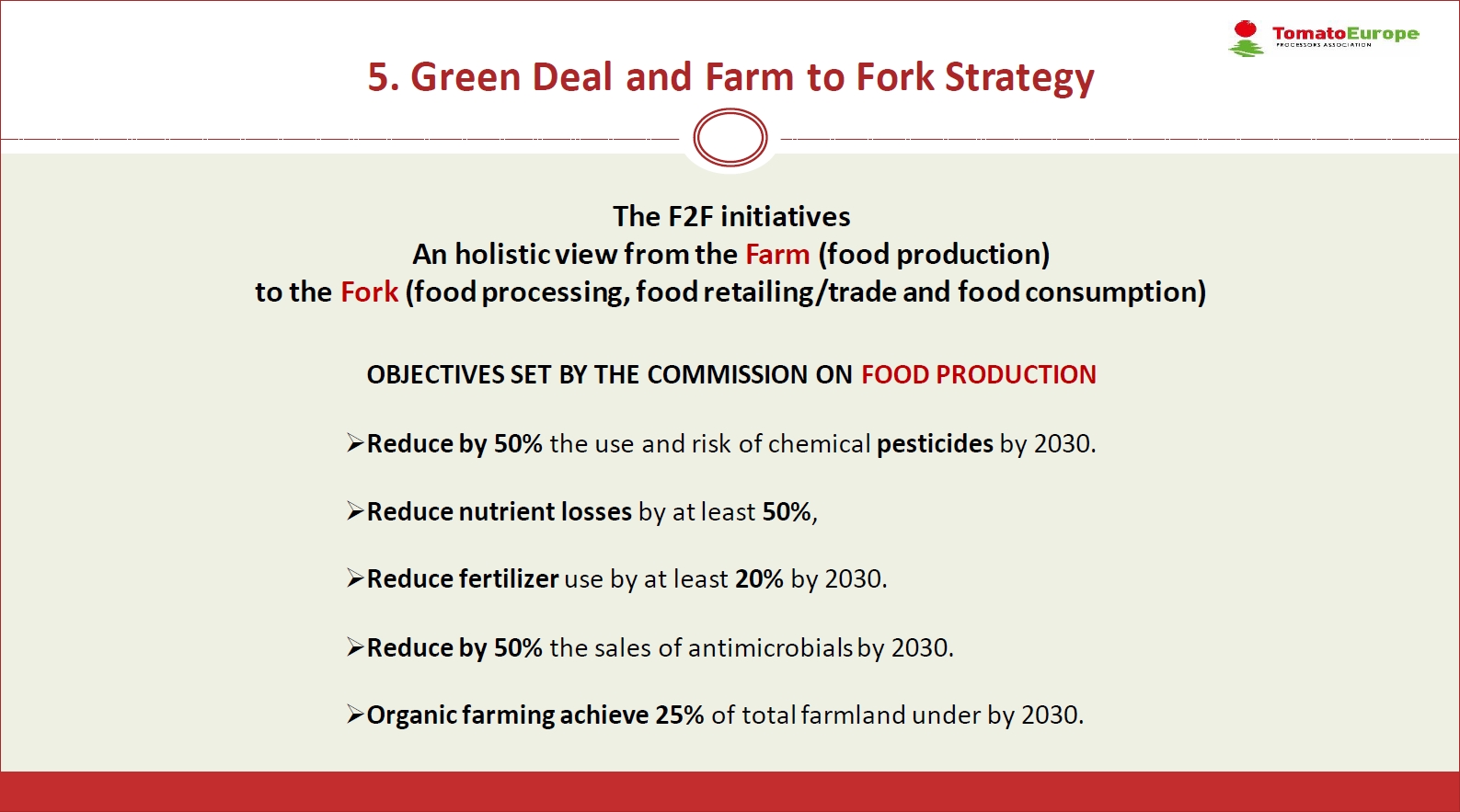Nutri-Score: valuable tool or clever marketing trick?
Germany officially rolls out Nutri-Score
Germany's Federal Minister for Food and Agriculture, Julia Klöckner, says she expects food manufacturers to use Nutri-Score after the controversial food labelling scheme was officially introduced in the country earlier this month.
Although companies in Germany will be now able to use Nutri-Score it is not mandatory for businesses. The scheme provides a combined scale of colors of letters from a green A to a red E designed to make it easier for consumers to recognize and compare the nutritional quality of products.
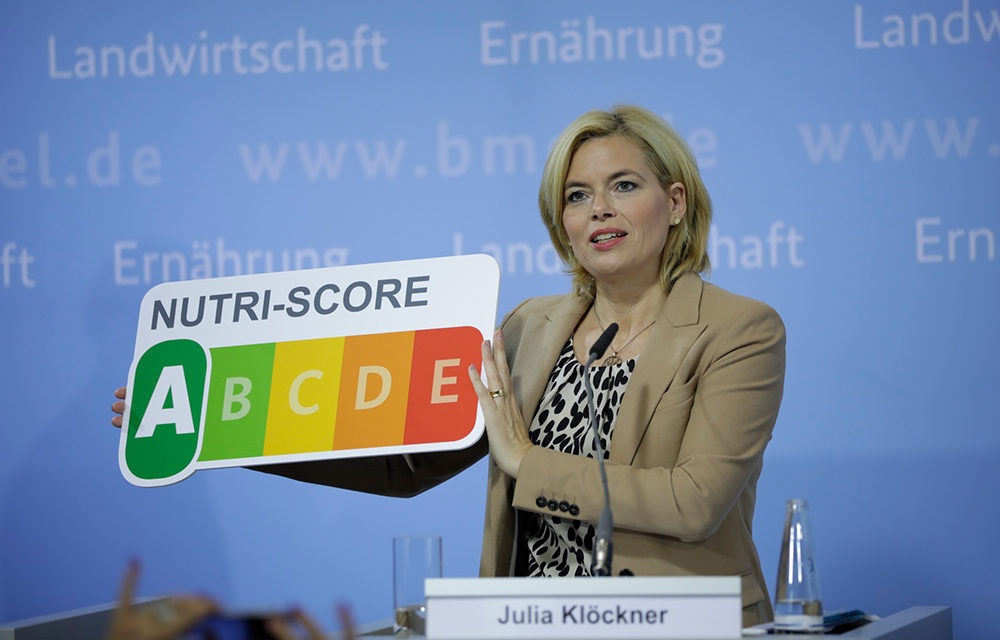 Klöckner said: "One of the major nutritional policy projects for Germany has been successfully implemented. Now the economy and trade hove to keep pace. The Nutri-Score offers consumers easily understandable and comparable information and is therefore a helpful orientation on the supermarket shelf. The healthy choice should be as easy as possible. I have a clear expectation of the food industry that they will use the labelling - we have now created the legal requirements for this. Regardless of this, I am committed to harmonizing the extended nutrition labelling at EU level."
Klöckner said: "One of the major nutritional policy projects for Germany has been successfully implemented. Now the economy and trade hove to keep pace. The Nutri-Score offers consumers easily understandable and comparable information and is therefore a helpful orientation on the supermarket shelf. The healthy choice should be as easy as possible. I have a clear expectation of the food industry that they will use the labelling - we have now created the legal requirements for this. Regardless of this, I am committed to harmonizing the extended nutrition labelling at EU level."
With the EC currently mulling which mandatory nutrition label to choose as part of its Farm-to-Fork sustainable food strategy later this year, Nutri-Score, which classifies food and beverages according to their nutritional profile by using a color-coded system with a scale ranging from A (healthier choices) to E (less healthy choices), is the current favorite.
Governments in France, the Netherlands, Switzerland, Spain and Belgium have opted for Nutri-Score as their voluntary labelling scheme of choice. Many major retailers and food producers in Europe such as Nestle, Kellogg and Danone have also voluntarily chosen to adopt Nutri-Score. The likes of Danone and Nestle are also urging the UK government to switch from traffic light nutrition labels to Nutri-Score as the country consults on its new obesity strategy,
Nutri-Score Is not without its critics, however. The Italian government has voiced strong criticism of the system, fearing that it will have a negative impact on traditional Italian delicacies such as cured meats and cheeses.
The EU farmers lobby COPA-COGECA shares Italy's fears that the system's algorithms simplify nutritional information and risks penalizing some of the core products of the Mediterranean diet such as olive oil: "Any front-of- pack nutrition labelling should be science based and take into account the complexity of food products when establishing their overall nutritional contribution, and not be based exclusively on certain nutrients. By focusing solely on a very limited number of nutrients such as sugar, fat and salt or the energy intake, we end up setting aside nutritiously valuable food products such as honey and promoting unhealthy ones such as aspartame based diet soft drinks," said Pekka Pesonen, Copa and Cogeca Secretary General.
"Many of the products that could be damaged by such a simplistic approach ta nutrition labelling are revered for their health benefits and are at the heart of traditional diets like the Mediterranean one. They contribute to food diversity, which is a cornerstone of any balanced diet. Painting them red won't help the consumers or the producers."
Italy has kicked its long-standing fight against the adoption of Nutri-Score nutritional labelling across the EU up a notch in a new “non-paper” that has secured the official backing of seven other member states.
With the EC currently mulling which mandatory nutrition label to choose as part of its Farm-to-Fork sustainable food strategy later this year, NutriScore, which classifies food and beverages according to their nutritional profile by using a color-coded system with a scale ranging from A (healthier choices) to E (less healthy choices), is the current favorite.
Governments in France, Germany, the Netherlands, Switzerland, Spain and Belgium have opted for NutriScore as their national voluntary labelling scheme. Many major retailers and food producers in Europe such as Nestle, Kellogg and Danone have also voluntarily chosen to adopt NutriScore.
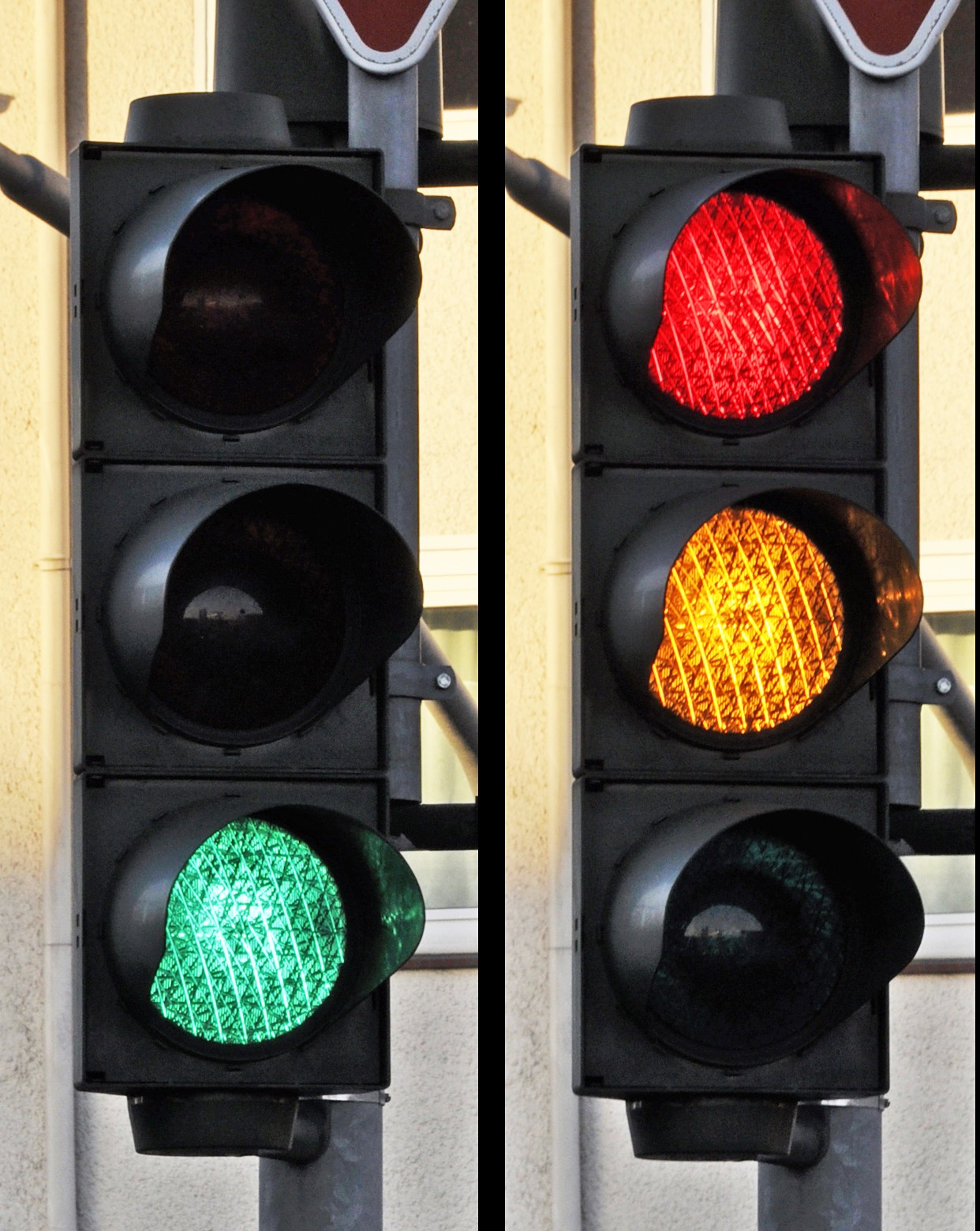 However, Italy is strongly opposed to the system - which calculates a single overall score for a food or drink using an algorithm that takes into account both the nutrients to limit (calories, saturated fat, sugars and salt] and those elements to favor (fibre, proteins, nuts, fruit and vegetables). The food is assigned a color and letter based on the resulting score, calculated per 100g or 100mL
However, Italy is strongly opposed to the system - which calculates a single overall score for a food or drink using an algorithm that takes into account both the nutrients to limit (calories, saturated fat, sugars and salt] and those elements to favor (fibre, proteins, nuts, fruit and vegetables). The food is assigned a color and letter based on the resulting score, calculated per 100g or 100mLOutlining its long-standing objections to Nutri-Score, the non-paper conceded that front-of-pack nutritional labelling (FOPNL] has been identified as a tool to “help consumers make more informed and correct food and drink choices” in a bid to combat diet related diseases,
However, the non-paper-submitted to the AGRIFISH EU Council on 21 September by the Italian and Czech delegations on behalf of Cyprus, Greece, Hungary, Latvia and Romania - stressed that a voluntary approach is preferable.
"If a new European harmonized Front-of-Pack nutritional labelling scheme were to be introduced, it should be in the interest of the single internal market and the level playing [sic]. It should also be voluntary in order to avoid unnecessary burden on the food industry and food business operators, especially on small businesses."
Italy rejects need for Nutri-Score: 'Consumers have enough information about the nutritional value of food'
Italy has long argued that the NutriScore system unfairly discriminates against its famous food delicacies such as olive oil, Parma ham and Parmigiano cheese. Italy fears these items, under NutriScore, would receive a red-to-orange warning sign on labels owing to their high fat and salt content.
The non-paper offers up a simple get-out clause: "Food is part of our cultural heritage. If a new harmonized FOPNL scheme is introduced, it should exempt the Protected Designation of Origin (PDO) products, Protected Geographical Indication (PGi) products, Traditional Specialities Guaranteed (TSG) products and single ingredient products (e.g. olive oil) from the requirement of using it."
While on the one hand, Italy argued that its traditional delicacies should be exempt, on the other the document went on to question some of the fundamental principles underpinning the Nutri-Score calculations.
Querying whether the scheme will help guide consumers towards healthier choices, the non-paper read: "Color codes have not shown to be effective in helping consumers evaluate the real nutritional quality/value of food. Therefore, an EU-harmonized FOPNL should consider foods as part of the wider context of the daily requirements of a healthy diet."
Moreover, a single overall score based on total nutritional content was deemed inadequate. "The system should not provide an overall evaluation of a food, but factual information on the individual nutrients contained in a product, in order to make sure that each consumer can choose according to his/her particular conditions and state of health," the non-paper argued.
NutrInform Battery
As part of its drive to block the EU-wide adoption of Nutri-score, Italy's government has offered the Commission an alternate proposal, called Nutrinform. Based on a "battery-powered" symbol (see related articles), Italy's preferred approach would show the consumer the nutritional contribution in relation to their daily needs.
But in its latest non-paper, the Italian delegation appeared to question whether any such labelling system is needed in the first place.
"Current EU Regulation 1169/2011/EU on food information to consumers obliges food business operators to display a nutrition declaration on processed pre-packaged foods, which provides information on the amount of seven key nutritional elements (fat, saturated fats, carbohydrates, sugar, protein, salt and energy) per 100g/100ml of product," the non-paper noted. "This means that consumers currently have enough information about the nutritional value of food and contribution to their overall daily diet."
Health campaigner rebuffs Italian argument
Health campaigners at the European Heart Network (EHN) disagreed with a number of the arguments set out by Italy and its backers.
ENH rebuffed the suggestion that FPO color coded labels are an ineffectual health tool, citing research concluding FOP labels increase consumer intent to buy healthier foods. Suggesting that consumers “have enough information” goes “directly against evidence” that FOP labelling (versus compulsory back of pack labelling) actually helps inform consumers, the NGO argued.
“The Italian government might indeed be using the front of pack labelling (FOPL) debate to protect its specialities, whereas FOPL should really be seen as a contributor to public health. In Italy, where obesity rates (in particular obesity rates in children) tend to be very high, the population would greatly benefit from a FQPL system," EHN CEO Birgit Beger told FoodNavigator.
However, EHN does agree that the algorithm used to calculate Nutri-Score should be revisited, "The algorithm behind Nutri-Score should be improved, not because it is oversimplistic, but because an improved algorithm could take into account national food-based dietary guidelines; this could achieve changes in dietary habits to promote cardiovascular health, but also dietary health more broadly and across all EU Member States," Beger explained.
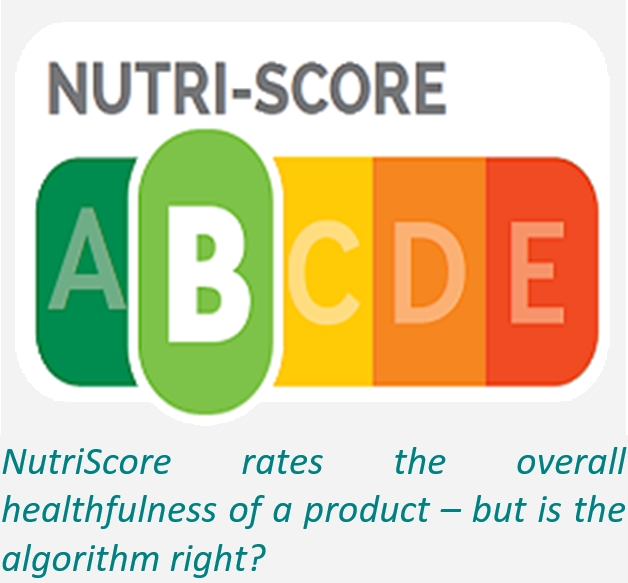 EHN wants to see the establishment of a science-based and transparent process to tackle this issue, "EHN also recommends that a scientific committee of independent experts should be established to review and adapt the algorithm underpinning Nutri-Score and to assess whether and under what conditions the algorithm may be converted into a pan-European label. The workings of the committee must be transparent, and robust safeguards against conflicts of interest are essential. Committee members should be drawn from different regions within Europe, representing varying dietary patterns. The recommendations of the scientific committee must be published and open for consultation with all stakeholders. From an internal market perspective this would also create a simplified operating environment for food manufacturers," Beger insisted.
EHN wants to see the establishment of a science-based and transparent process to tackle this issue, "EHN also recommends that a scientific committee of independent experts should be established to review and adapt the algorithm underpinning Nutri-Score and to assess whether and under what conditions the algorithm may be converted into a pan-European label. The workings of the committee must be transparent, and robust safeguards against conflicts of interest are essential. Committee members should be drawn from different regions within Europe, representing varying dietary patterns. The recommendations of the scientific committee must be published and open for consultation with all stakeholders. From an internal market perspective this would also create a simplified operating environment for food manufacturers," Beger insisted.
This revision would address some of the criticisms of Nutri-Score, namely that by calculating one score for a product and not giving a nutrient-by-nutrient breakdown there is a risk of skewed results for categories like oily fish, for example.
"A revised algorithm could take for example whole grain into consideration (and not only fibre as is the case now) and also the quality of fat (origin of fat e.g. "oily fish").
'The visual image of Nutri-Score is very good and easy to understand for consumers (as is proven by many studies), but improving the algorithm would be decisive for an even better effect on cardiovascular health in particular and on public health in general."
More about labeling…
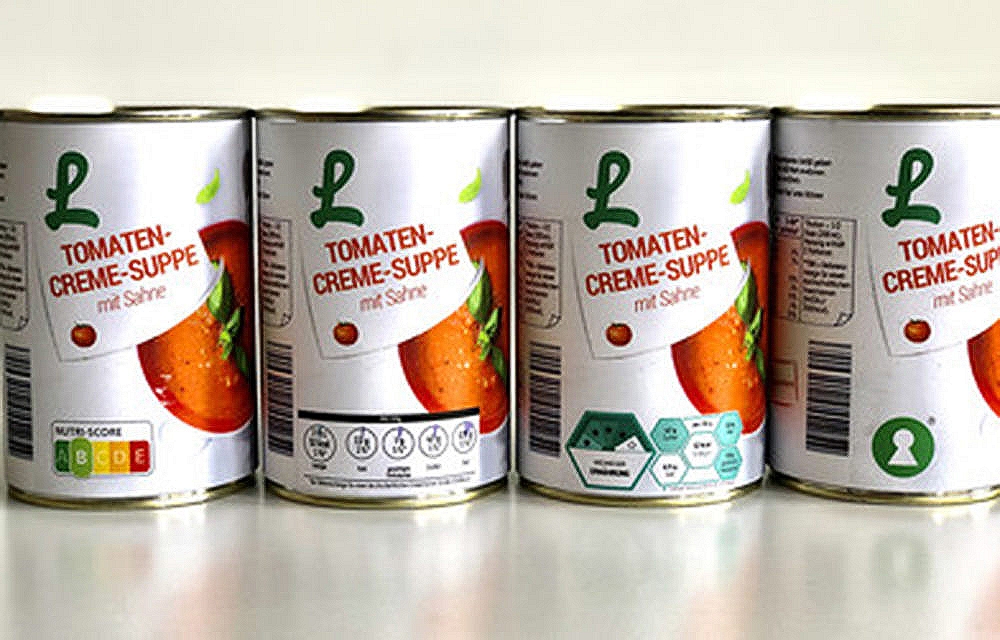 On the sidelines of these news, TomatoEurope has recently produced a synthesis of the latest developments, major topics and steps related to the Information to Consumers policy and food labelling in Europe.
On the sidelines of these news, TomatoEurope has recently produced a synthesis of the latest developments, major topics and steps related to the Information to Consumers policy and food labelling in Europe.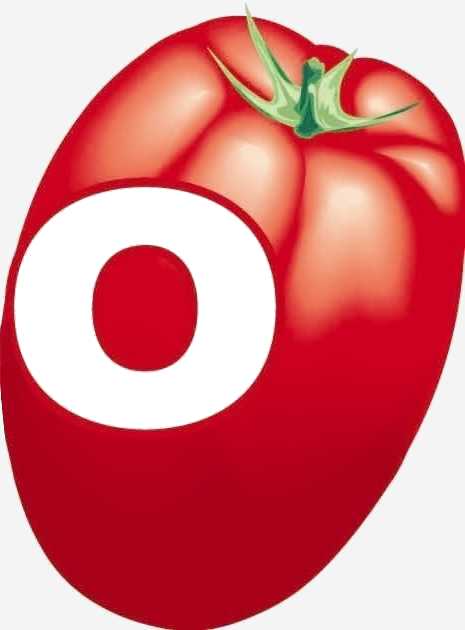 Regarding the “Farm to Fork” program and Info to Consumers, the EC published on 20 May 2020 its “Farm to Fork (F2F) Strategy for a fair, healthy and environmentally friendly food system”. The Strategy includes actions in the field of food information to consumers;
Regarding the “Farm to Fork” program and Info to Consumers, the EC published on 20 May 2020 its “Farm to Fork (F2F) Strategy for a fair, healthy and environmentally friendly food system”. The Strategy includes actions in the field of food information to consumers; FOP (Front of pack) nutrition labelling: On 20 May 2020 the COM published its report on front of pack nutrition labelling as part of a set of documents accompanying the publication of the EU “Farm to Fork Strategy”. The Report, originally due by 13 December 2017 is based on a scientific literature review by the European Commission’s Joint Research Centre (JRC). After an analysis of the existing FOP schemes, and their impact on consumers, businesses, and on the Single Market, the Report concludes that “it seems appropriate to introduce a harmonized mandatory FOP nutrition labelling at EU level”; by Q4 2022, the Commission will propose harmonized mandatory front of pack (FOP) nutrition labelling at EU level.
FOP (Front of pack) nutrition labelling: On 20 May 2020 the COM published its report on front of pack nutrition labelling as part of a set of documents accompanying the publication of the EU “Farm to Fork Strategy”. The Report, originally due by 13 December 2017 is based on a scientific literature review by the European Commission’s Joint Research Centre (JRC). After an analysis of the existing FOP schemes, and their impact on consumers, businesses, and on the Single Market, the Report concludes that “it seems appropriate to introduce a harmonized mandatory FOP nutrition labelling at EU level”; by Q4 2022, the Commission will propose harmonized mandatory front of pack (FOP) nutrition labelling at EU level. Nutrient profiles: by Q4 2022, the Commission will set nutrient profiles to restrict the promotion (via nutrition or health claims) of foods high in fat, sugars and salt.
Nutrient profiles: by Q4 2022, the Commission will set nutrient profiles to restrict the promotion (via nutrition or health claims) of foods high in fat, sugars and salt. Origin labelling: The Farm to Fork initiative includes an action on origin labelling (by Q4 2022, the COM “will consider proposing the extension of mandatory origin or provenance indications to certain products”. The European Commission will launch an inception impact assessment (IIA) on the revision of the Food Information to Consumers Regulation (Q4 2020). The IIA is expected to outline different policy options on country of origin labelling.
Origin labelling: The Farm to Fork initiative includes an action on origin labelling (by Q4 2022, the COM “will consider proposing the extension of mandatory origin or provenance indications to certain products”. The European Commission will launch an inception impact assessment (IIA) on the revision of the Food Information to Consumers Regulation (Q4 2020). The IIA is expected to outline different policy options on country of origin labelling. Implementation of article 26 (3) (relating to the provision of food information to consumers, as regards the rules for indicating the country of origin or place of provenance of the primary ingredient of a food): the Implementing Regulation is applicable since 1 April 2020. However due to the CoVid 19 crisis, many Member States have taken a lenient approach in the initial phase of implementation or have postponed the enforcement of the new rules. From its side, the EC refused to formally postpone the application of Reg (EU) 2018/775, considering it a disproportionate and impractical matter
Implementation of article 26 (3) (relating to the provision of food information to consumers, as regards the rules for indicating the country of origin or place of provenance of the primary ingredient of a food): the Implementing Regulation is applicable since 1 April 2020. However due to the CoVid 19 crisis, many Member States have taken a lenient approach in the initial phase of implementation or have postponed the enforcement of the new rules. From its side, the EC refused to formally postpone the application of Reg (EU) 2018/775, considering it a disproportionate and impractical matter Date marking: by Q4 2022, the Commission will revise the rules on date marking.
Date marking: by Q4 2022, the Commission will revise the rules on date marking. Green claims: the Commission will examine ways to harmonize voluntary green claims. There is no fixed deadline.
Green claims: the Commission will examine ways to harmonize voluntary green claims. There is no fixed deadline. Sustainable food labeling framework: by 2024, the Commission “will examine ways to create a sustainable labelling framework that covers, in synergy with other relevant initiatives, the nutritional, climate, environmental and social aspects of food products.”
Sustainable food labeling framework: by 2024, the Commission “will examine ways to create a sustainable labelling framework that covers, in synergy with other relevant initiatives, the nutritional, climate, environmental and social aspects of food products.” Nutri score: In the meantime, Nutri Score algorithm will be evaluated by an international Committee of scientific experts. This review could lead to changes in how the rating is calculated. Other countries (UK, Italy, Scandinavian countries) keep on going with their schemes.
Nutri score: In the meantime, Nutri Score algorithm will be evaluated by an international Committee of scientific experts. This review could lead to changes in how the rating is calculated. Other countries (UK, Italy, Scandinavian countries) keep on going with their schemes.
Towards carbon labeling?
As the link between climate change and the global food system has become clear, consumers are more conscious of the environmental impacts of their food purchases. Companies have responded with plans to put carbon labels on their products to show total estimated greenhouse gas emissions associated with the product.
Total emissions can be difficult to calculate as the carbon footprint of food includes emissions from land conversion, the growing and harvesting processes, livestock digestion, transportation, packaging, and food processing. In 2007, Tesco, the UK’s biggest supermarket chain, attempted to label all its products with the total number of emissions, but halted its project due to the complexity of the calculations.
However, companies like Carbon Trust have been doing carbon calculations, certification program, and carbon labels since 2007.
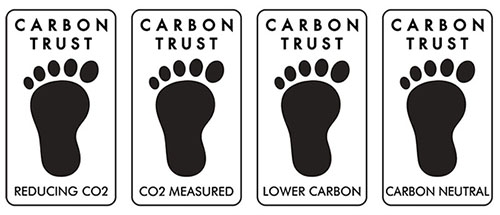 Recently, there has been a resurgence in the carbon labeling movement as several large companies have announced their own plans with carbon labels. Quorn claims to be the first meat-free food manufacturer to introduce carbon labels on its products and have their emission figures verified by Carbon Trust.
Recently, there has been a resurgence in the carbon labeling movement as several large companies have announced their own plans with carbon labels. Quorn claims to be the first meat-free food manufacturer to introduce carbon labels on its products and have their emission figures verified by Carbon Trust.The plant-based milk brand, Oatly, has put their carbon labels online and on some product packaging on European products, and is planning on adding labels to U.S. products soon. Unilever, the multinational company, announced its plan to track and communicate the carbon footprint of its goods and services as part of their broader goal to fight climate change. Nestlé, the multinational food and drink corporation, is also reportedly considering carbon labels.
Just Salad became the first U.S. restaurant chain to carbon label its menu by Climate Week, which began in September: “Food is the strongest lever we have as individuals for fighting climate change,” says Sandra Noonan, Just Salad’s chief sustainability officer. “If, as a society, we start paying attention to our dietary carbon footprints, much as we pay attention to our daily caloric intake, we could alter the course of planetary history.”
Some complementary data
Source: foodnavigator.com, TomatoEurope



 However, Italy is strongly opposed to the system - which calculates a single overall score for a food or drink using an algorithm that takes into account both the nutrients to limit (calories, saturated fat, sugars and salt] and those elements to favor (fibre, proteins, nuts, fruit and vegetables). The food is assigned a color and letter based on the resulting score, calculated per 100g or 100mL
However, Italy is strongly opposed to the system - which calculates a single overall score for a food or drink using an algorithm that takes into account both the nutrients to limit (calories, saturated fat, sugars and salt] and those elements to favor (fibre, proteins, nuts, fruit and vegetables). The food is assigned a color and letter based on the resulting score, calculated per 100g or 100mL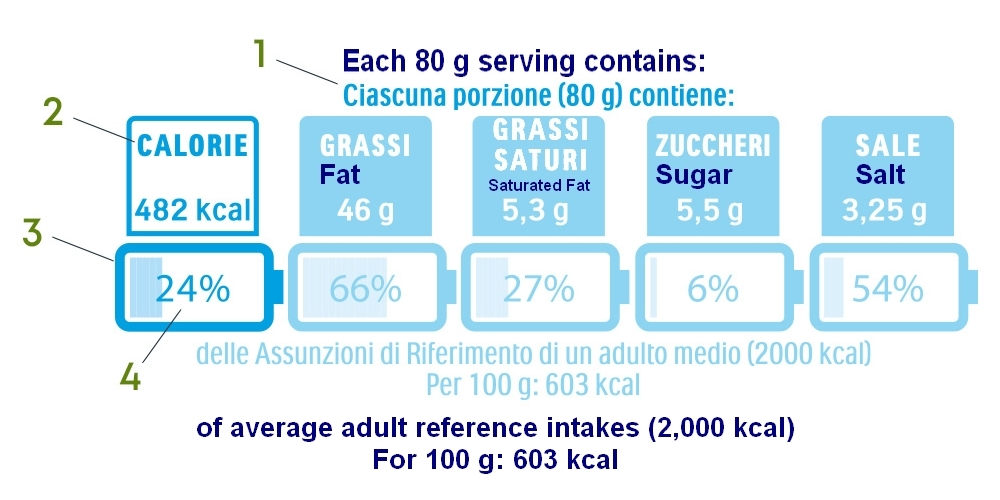
 EHN wants to see the establishment of a science-based and transparent process to tackle this issue, "EHN also recommends that a scientific committee of independent experts should be established to review and adapt the algorithm underpinning Nutri-Score and to assess whether and under what conditions the algorithm may be converted into a pan-European label. The workings of the committee must be transparent, and robust safeguards against conflicts of interest are essential. Committee members should be drawn from different regions within Europe, representing varying dietary patterns. The recommendations of the scientific committee must be published and open for consultation with all stakeholders. From an internal market perspective this would also create a simplified operating environment for food manufacturers," Beger insisted.
EHN wants to see the establishment of a science-based and transparent process to tackle this issue, "EHN also recommends that a scientific committee of independent experts should be established to review and adapt the algorithm underpinning Nutri-Score and to assess whether and under what conditions the algorithm may be converted into a pan-European label. The workings of the committee must be transparent, and robust safeguards against conflicts of interest are essential. Committee members should be drawn from different regions within Europe, representing varying dietary patterns. The recommendations of the scientific committee must be published and open for consultation with all stakeholders. From an internal market perspective this would also create a simplified operating environment for food manufacturers," Beger insisted.


